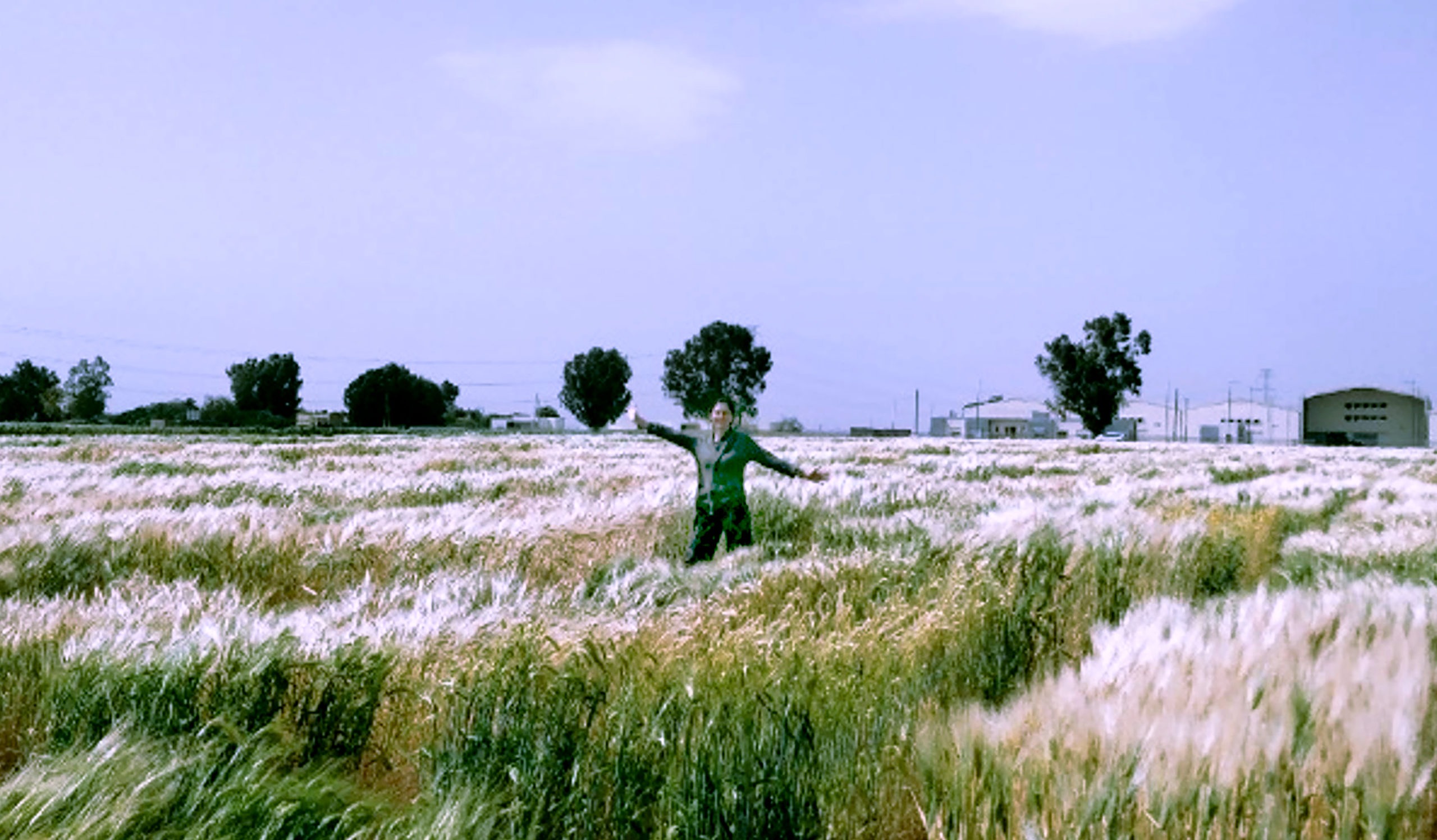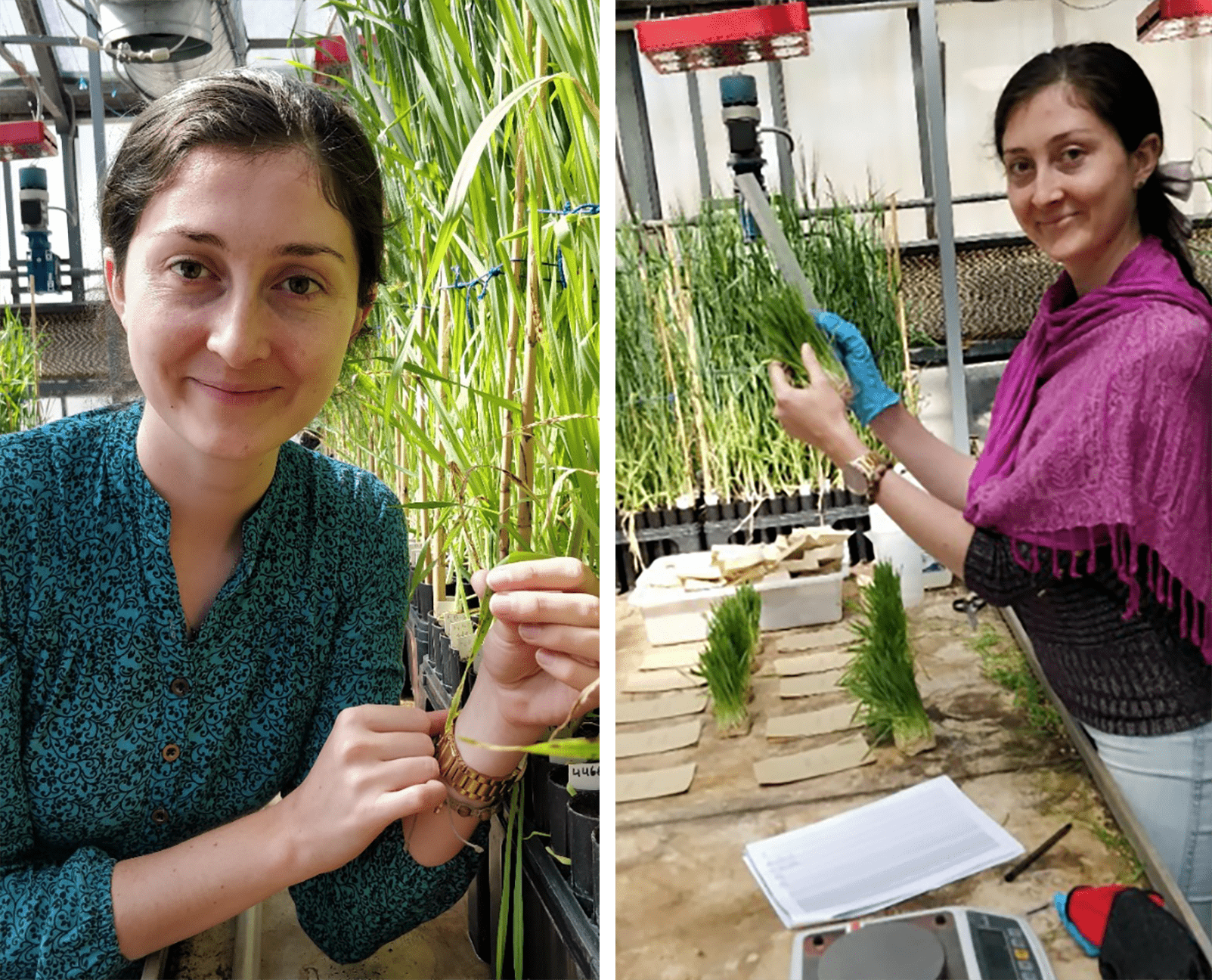

Screening barley varieties for net form net blotch resistance
August 10, 2023

The Crawford Fund’s highly sought after Student Awards are one way we support and encourage the next generation of Australians into study, careers and volunteering in international agricultural research.
The awards are funded by our State and Territory Committees and made possible by organisations including ACIAR, international centres, Australian and overseas universities and NGOs who host our awardees.
In 2022, we announced 14 tertiary students had won awards to gain international agricultural research experience and expertise. With the resumption of global travel, we are excited to see many of the young NextGen Student Awardees travelling overseas to undertake projects, with quite a few involved in our Instagram campaign, reporting when they are on the ground.
Nakita Cally, from the University of Queensland, visited ICARDA in Morocco for her project, ‘screening diverse barley accessions for resistance to net form net blotch’. Nakita was originally going to ICARDA in Ethiopia but diverted instead to Rabat in Morocco because of the instability in East Africa. She shares her experience below.
As a recipient of the Crawford Fund Student Award, Nakita travelled to Morocco to spend time with local breeders from the ICARDA Global Barley Breeding Program based in Rabat. During her visit, Nakita gained hands-on experience working in the team of Dr Miguel Sanchez, the Lead Breeder of the Global Barley Breeding Program. In particular, she:
- had the opportunity to evaluate a range of traits in glasshouse experiments and in field trials, including disease resistance;
- learned how to score disease, in particular net blotch, and observed the outcomes of the net form of net blotch inoculation process;
- undertook collaborative genetics research to identify new sources of resistance to an important disease affecting barley crops in both Queensland and northern Africa
- inspected barley crops, which helped her gain a better understanding of the challenges faced by barley farmers in North Africa; and
- learned about a real-world breeding programme that is seeking to develop improved crops for smallholder farmers based on the challenges they face and their targets in terms of the key traits that are required in new varieties.

“The focus of my project was exploring the genetics for resistance to the foliar disease net form of net blotch (NFNB) caused by Pyrenophora teres f. teres (Ptt). It is a devastating disease for barley growers in Queensland and northern Africa, where barley is a key crop in both farming systems,” Nakita explained.
According to Nakita, in Queensland and northern New South Wales, NFNB can cause yield losses above 30 per cent, making it an important pathogen to the barley industry. In Australia, NFNB causes barley production losses of up to $117 million annually. Consequently, the identification of novel sources of resistance against the pathogen is an increasing priority for the Australian barley breeding community.
The availability of low-cost whole genome marker platforms has dramatically changed how plant breeding is undertaken in recent years. The selection for durable genetic resistance to NFNB is a key focus for barley breeders. However, the genetic architecture of resistance to NFNB is complex, quantitative, and poorly understood.
“It was a great experience to be exposed to the genetic variation that the breeding programme is working with and learning how to score disease in the glasshouse and in the field,” she said.

Upon return to Australia, Nakita’s analysis found six novel resistance haplotypes in the ICARDA germplasm that were not found in the Australian germplasm.
“This represents an opportunity for breeders in Australia to use strategic introgression of the new resistance haplotypes to develop resistant barley varieties for Queensland growers,” she said.
“The new knowledge and molecular tools will help accelerate the development of cultivars incorporating improved NFNB resistance, which is anticipated to improve productivity and sustainability of production in Queensland and northern Africa,” said Nakita.




